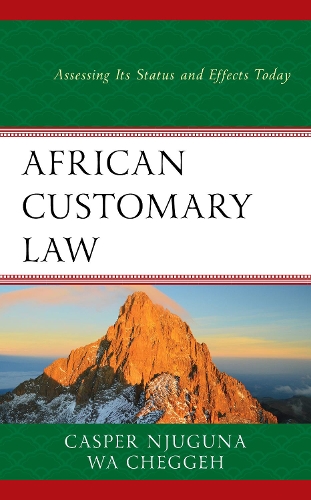
African Customary Law: Assessing Its Status and Effects Today
(Hardback)
Publishing Details
African Customary Law: Assessing Its Status and Effects Today
By (Author) Casper Njuguna
Bloomsbury Publishing PLC
Lexington Books
2nd December 2019
United States
Classifications
Professional and Scholarly
Non Fiction
Politics and government
340.5267
Physical Properties
Hardback
88
Width 161mm, Height 229mm, Spine 14mm
308g
Description
Africa is the emerging continent of the twenty-first century and will continue to play a major role in the world politics and trade. At the center of the African experience is customary law, which remains one of the most important and quintessential forms of legal, political, and social organization and regulation in the sub-Saharan landscape. Using qualitative and quantitative data, Casper Njuguna, sets a framework for understanding the hybrid nature of this law and creates an appropriate new moniker for itNeo-Autogenous Sub-Saharan Law (NAS law). This systematic and empirical analysis addresses philosophical issues like human rights, property rights, womens rights, individual rights and freedoms, family relations, social structures, and political loyalties, which span beyond Africa and African scholars.
Reviews
This book makes a major contribution in offering an original framework for understanding the hybrid nature of customary law in Sub-Saharan Africa. The seminal work stands out as the first rigorous, systematic empirical analysis of customary laws presence and its effects in the midst of a world society that increasingly adheres to the norm of written constitutions and ordinary law. -- Linda Camp Keith, retired clinical professor at the University of Texas at Dallas
Author Bio
Casper Njuguna is assistant professor at Texas A&M University-Commerce.
